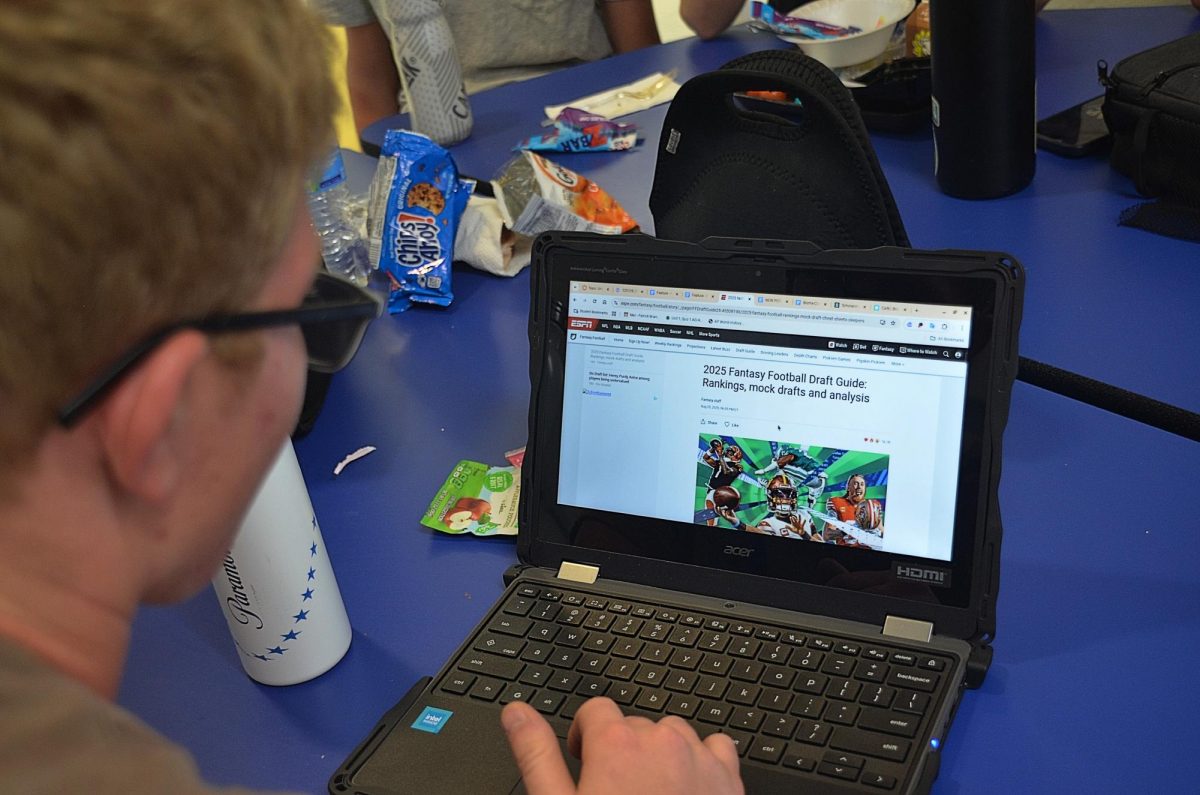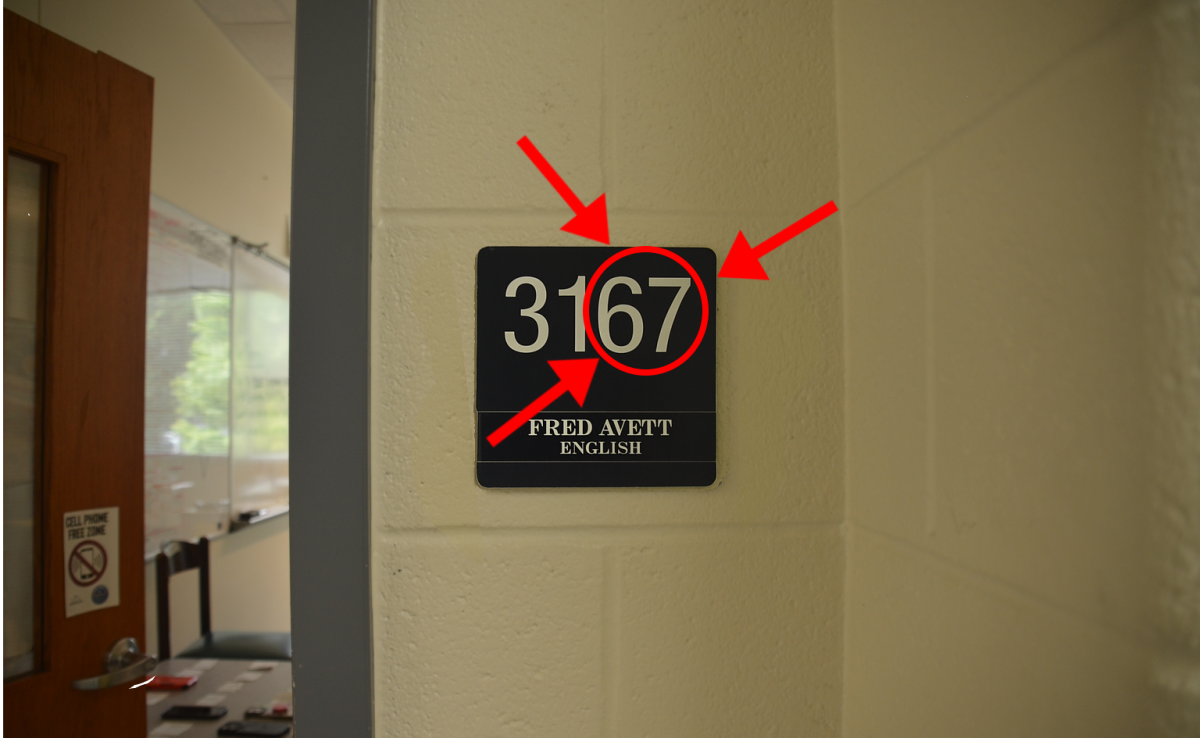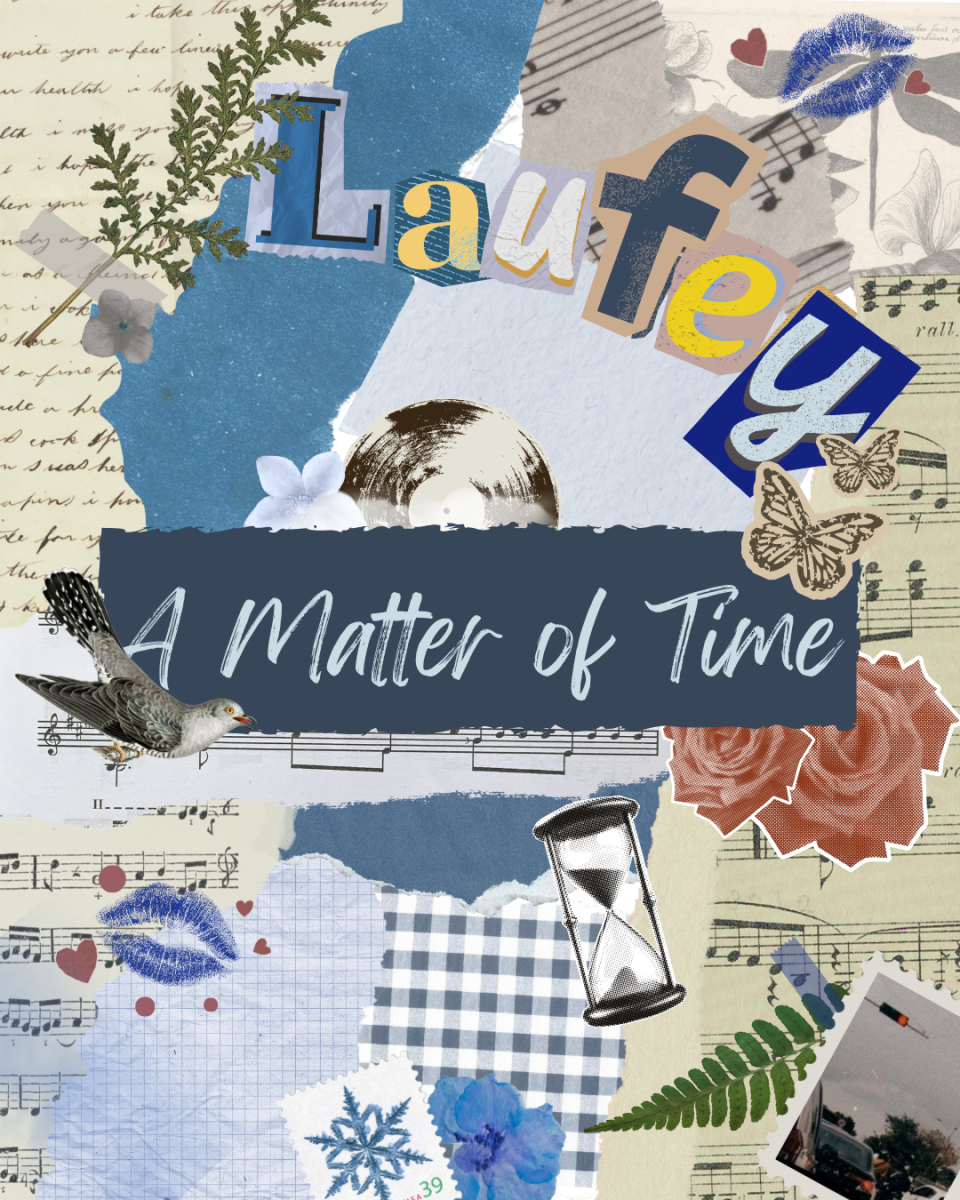Forget NFL preseason; the real hype for many of Chamblee students currently is for fantasy football, as students have been swept into this nationwide trend. According to ESPN, fantasy football consists of choosing your own team of players and watching the season games play out. Fantasy points are awarded when one of your players runs, passes, catches, or scores a touchdown. Each week, two players are matched together, competing to have the most fantasy points and advance in the tournament. With fantasy drafts getting underway now, football fans or not, students are finding themselves in fantasy leagues.
One of the common benefits of joining a league is that football knowledge is not required; as a result, a league can grow quickly without being limited to a select audience.
“I got into fantasy football because a lot of my friends were playing it. I didn’t really want to join because I don’t know much about football, but they convinced me to join,” said Bennett Gerspacher (‘27). “I like watching my friends do the punishment, and I get lucky sometimes.”
Since many students get into fantasy through friends and may not have the best knowledge of the game, a wide range of draft strategies are employed by students to give themselves the best odds of winning.
“Obviously, if I have a high draft pick, I’m gonna take someone with a ton of potential and a very high floor, but I’m more of a best player available kind of guy,” said Evan Nadler (‘28).
While being knowledgeable about the drafting process can be helpful, with the rise of AI’s intelligence, students can use this tool in the drafting process to make up for a lack of knowledge.
“I don’t really know anything about football, so I just used Chat GPT and asked a bunch of questions about football. It did the draft for me,” said Gerspacher.
Other students might take a different approach, as students may be led to select players they have been fans of consistently and from teams that they follow.
“I just pick the players I like and other ones I want to cheer for,” said Owen Tang (‘26).
Why do students play? Fun, competition, and interest in how their players are doing allows for fans and nonfans alike to enjoy watching the game.
“You don’t really care about a lot of the games until you have something to lose or gain from them,” said Tang. “It makes something I’m already watching more enjoyable because one of the players is on my fantasy team, so I gotta watch the game.”
Many of these leagues are built on competition among friends, and many students find that they are heavily motivated by perceived superiority over their group.
“Competition’s definitely a major part of it because there’s a ton of bragging rights involved for just being better than your friends,” said Nadler.
Many students’ favorite part of fantasy is the punishments unless, of course, they happen to end up in that position. Many students get very creative and intense for their punishments, adding to the serious manner of the game.
“The punishment [for our league] is to get off of every exit on 285 and fill your car with any amount of gas until you complete the circuit,” said Gerspacher.
While that’s a complete waste of a day, other punishments are more geared towards having the loser be completely miserable by having to do something gross or nasty.
“The loser has to drink a mystery smoothie of a bunch of different ingredients that people bring,” said Aaron Crabbe (‘28).
For other leagues, embarrassment is the way they go, as it can cut the nastiness, and students can have a good laugh at a friend’s expense.
“The loser has to take a cardboard cutout of their ex on a date to a fancy restaurant, then somebody else will bring that ex to the restaurant to see them,” said Mason Weiss (‘26).
While not everybody will enjoy fantasy, many students are dedicated to their leagues and very glad they started, even if they didn’t know anything about football prior.
“I love it,” said Nadler. “I’d recommend everyone to start doing it if they haven’t already.”













